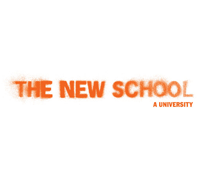Forum Network
Free online lectures: Explore a world of ideas

The New School is a legendary, progressive university comprising eight schools bound by a common, unusual intent: to prepare and inspire its 9,400 undergraduate and graduate students to bring actual, positive change to the world. From its Greenwich Village campus, The New School launches economists and actors, fashion designers and urban planners, dancers and anthropologists, orchestra conductors, filmmakers, political scientists, organizational experts, jazz musicians, scholars, psychologists, historians, journalists, and above all, world citizens-individuals whose ideas and innovations forge new paths of progress in the arts, design, humanities, public policy, and the social sciences. In addition to its 70 graduate and undergraduate degree-granting programs, the university offers certificate programs and more than 1,000 continuing education courses to 13,000 adult learners every year. To learn about our academic programs and more please visit The New School website at http://www.newschool.edu